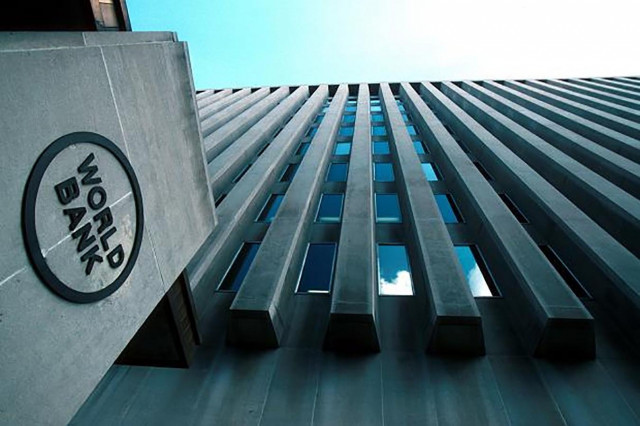Is there a balance of payments crisis in the making?
World Bank economist says Pakistan may not be headed for total disaster, but needs to confront challenges

PHOTO: REUTERS
Armas, at the sidelines of the launch of its Pakistan Development Update report, said the country needs to manage its exchange rate, echoing views of several noted economists who feel the Pakistani rupee is severely overvalued against the US dollar.
"We feel that right now, what is constraining the country's ability to manage pressures [on the balance of payments front] is an exchange rate that has no flexibility," Armas told The Express Tribune.
His comments came in the wake of a scathing report released by the World Bank on Thursday that said Pakistan's macroeconomic conditions have severely worsened and the country was likely to miss all its key targets for fiscal year 2017-18.
As the report became public, arguments and discussions began whether Pakistan would need another bailout from the International Monetary Fund (IMF) like it did in 2013.
"Not right now…" said Armas. "You still have [foreign exchange] reserves of 2.5 months of imports. So there are enough reserves capable of absorbing a shock."
President Mamnoon inaugurates Bank of China's operations
In its report, the World Bank had said that Pakistan's reliance on short-term foreign commercial loans significantly increased and the government obtained $5.8 billion short-term loans in just two years. "These bullet facilities of relatively short horizons can create repayment issues in the future," warned the Washington-based lender.
Armas, however, said while there may be repayment issues, there are measures that can be taken to address economic woes.
"Going forward, to address these types of pressures, you need certain measures and certain measures mean increasing exchange rate flexibility. You also need a medium-term agenda to increase economic competitiveness so you can increase exports and contain imports," he said.
Pakistan's trade deficit widened $9.1 billion in the first quarter of the current fiscal year, up 30% as imports grew at double the pace of exports.
When asked if Pakistan would face a crisis in the long-term, Armas said the road ahead could be better if policy interventions continue.
"There are some interventions the government has carried out…security has improved, load-shedding has declined...these all are interventions of policy that will support an increase in exports," he said.
Pakistan's exchange rate, the rupee-dollar parity, stood at Rs105.44 per dollar in the inter-bank market on Friday. The rate has remained stagnant at the level for the last four months.
New govt ‘will return to IMF’
While the World Bank warned of a macroeconomic deterioration and its economist said rupee depreciation was needed, noted economist Dr Ashfaque Hasan Khan said that a balance of payments crisis is in the making.
"The [present] government would hand over the economy to the next one in a very poor condition," Khan said. "The situation would leave no option but for the new government to go back to the IMF," he reiterated.
Khan is one of the loudest critics of the current government, and has time and time again warned of a potential crisis given the country's reliance on short-term loans.
Pakistan hits back, rejects World Bank’s estimate of financing needs
He said the economy was on a decline due to full-time engagement of the government in politics. Ishaq Dar, the lead financial architect, is missing in action and reportedly receiving medical treatment in London at a time when a corruption case against him is ongoing in Islamabad.
Total foreign exchange reserves of the country have decreased 18.59%, or $4.54 billion, in the last one year and currently sit at $19.91 billion as on November 3, 2017.
The reserves are depleting mainly due to debt repayments, ballooning imports, reduced exports and slowdown in remittances.
With depleting reserves, Pakistan has looked to tap all available sources of foreign currency including Eurobonds, China, international lending agencies as well as selling stakes in profitable entities.
The country's foreign debt has now swelled to all-time high of over $83 billion.
"The crisis would occur due to the widening current account and trade deficits. The government isn't letting the exchange rate be flexible."
Published in The Express Tribune, November 11th, 2017.
Like Business on Facebook, follow @TribuneBiz on Twitter to stay informed and join in the conversation.



















COMMENTS
Comments are moderated and generally will be posted if they are on-topic and not abusive.
For more information, please see our Comments FAQ